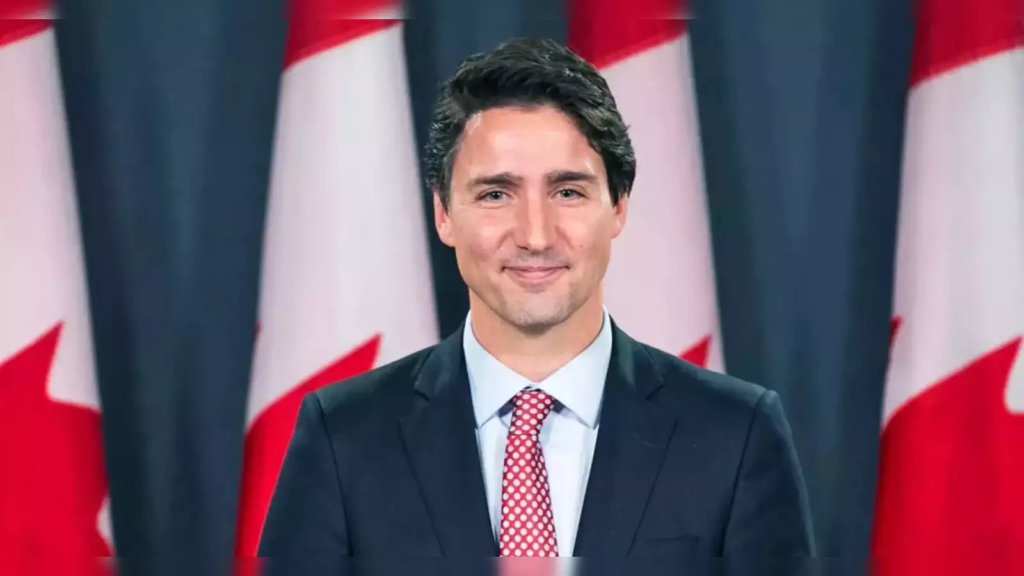Trudeau India diplomatic conflict: Despite repeated rebukes from India, the Justin Trudeau government of Canada is not showing any signs of improvement. Sometimes Canada makes false allegations against India and sometimes tells fabricated stories. Now the Trudeau government has alleged that the Indian High Commissioner and diplomat Sanjay Kumar Verma are involved in the murder of Khalistani separatist Hardeep Nijjar in Canada. The Indian government has taken a tough stand on this absurd statement and has decided to recall its High Commissioner and other diplomats from Canada.
Table of Contents
The Indian Foreign Ministry has said that Canada’s allegations against India’s diplomat are absurd. India said that the Trudeau government’s allegations are motivated by political agenda. India said that Canada’s allegations are politically motivated. Because despite India’s repeated requests, Canada did not share any evidence with India in this matter.
India’s Ministry of External Affairs (MEA) said that Trudeau’s ‘vote bank’ politics is affecting his diplomatic relations with India. According to the statement of the Indian Ministry of External Affairs (MEA), ‘The purpose of Canadian Prime Minister Justin Trudeau’s visit to India in 2018 was to woo the vote bank, which backfired on him. His cabinet also included people who promote anti-India separatist agenda.’

Absurd statements to hide failure at home
The MEA statement said, “Prime Minister Trudeau’s hostility towards India has been seen for a long time. His visit to India in 2018, which was aimed at wooing the vote bank, backfired for him. His Cabinet has included people who have openly associated themselves with an extremist and separatist agenda with regard to India.”
India said, ‘His interference in India’s internal politics in December 2020 showed how far he is willing to go in this matter. His government’s reliance on a political party whose leaders openly support separatist ideology towards India made matters worse.’
New Delhi’s statement said, “Facing criticism for ignoring foreign interference in Canadian politics, his government has deliberately dragged India into it to minimize the damage. This latest incident targeting Indian diplomats is now the next step in the same direction.”
India further said, ‘It is no coincidence that this is happening at a time when Prime Minister Trudeau is to appear before the Commission on Foreign Interference. It also serves the anti-India separatist agenda, which the Trudeau government has constantly promoted for narrow political gains.’
Trudeau’s relations with India have always been a bit strained. Especially since his political fortunes have become more dependent on the Sikh-dominated party, the New Democratic Party of Jagmeet Singh. However, Jagmeet Singh has recently withdrawn his support from the Trudeau government.
In such a situation, it would not be wrong to mention Justin Trudeau’s father Pierre Trudeau’s India policy here. Pierre Trudeau’s policies played a major role in the growth of Khalistani separatist elements in Canada in the 1970s and 1980s.
Relations soured during Pierre Trudeau’s tenure
Pierre Trudeau was the 15th Prime Minister of Canada from 1968 to 1979 and again from 1980 to 1984. Both Pierre and his son Justin Trudeau’s relations with India have been strained. The main reason for this has been their stance on the Khalistan separatist movement. While the initial signs of these tensions were seen during Pierre Trudeau’s tenure, Justin Trudeau’s approach has further inflamed these tensions. Due to which India-Canada relations have deteriorated drastically.
The 1970s were a period of rapidly changing geopolitical equations. In the Indian subcontinent, with the break-up of Pakistan, a new nation, Bangladesh, emerged. Pierre Trudeau visited India in 1971 – the pictures of his visit to the Taj Mahal made headlines around the world.
Deeper down, India and Canada were collaborating to produce nuclear energy. But when India conducted a nuclear test in 1974, Trudeau turned around and took an anti-India stance. By that time, he was already supporting Khalistani elements.

Senior Trudeau nurtured Khalistanis in Canada
Pierre Trudeau’s Canada had a growing Sikh population and was becoming a haven for many Khalistani terrorists. As head of government, Pierre Trudeau opposed India’s requests to extradite known terrorists, particularly Talwinder Singh Parmar.
It is believed that his policy of supporting India’s extremist separatists led to the 1985 bombing of Air India Flight 182 – the Kanishka bombing. Talwinder Parmar was said to be the mastermind of the Kanishka bombing, which killed 329 people – mostly Canadians of Indian origin. It remains the biggest terrorist attack in Canadian history.
Although the bombing plotter, Talwinder Singh Parmar, was eventually killed by police in Punjab in 1992, the incident deeply damaged India-Canada relations.
Justin Trudeau’s tenure has continued the problematic legacy of Khalistani extremism in Canada. His handling of the issue has led to him being accused of harboring anti-India elements and allowing the Khalistani movement to re-emerge within Canadian borders .
Justin Trudeau’s long-standing reliance on the support of Jagmeet Singh, a politician sympathetic to the Khalistani movement, is understood to be shaping his soft stance on the issue. Sikhs are an influential group of voters in Canada – and a factor that has led Trudeau to prioritise domestic politics over international relations with India, according to today’s statement from the Ministry of External Affairs.
During his 2018 visit to India, a known Khalistani militant was invited to a Canadian diplomatic event, drawing a strong reaction from India. Trudeau denied any direct involvement in the invitation, but by then the damage was done. The visit proved to be a diplomatic failure.
Trudeau once again inflamed tensions after Nijjar’s assassination in 2023—in what India said was a suspected gang war and an intelligence plot according to the Canadian government. Speaking in the Canadian Parliament, Trudeau accused India of involvement in the killing of Nijjar, a designated Khalistani terrorist, in the Canadian province of British Columbia.
Both sides have traded accusations and counter-accusations over the issue, further souring bilateral ties with each new dispute proving more bitter than the previous one.
Also Read:

